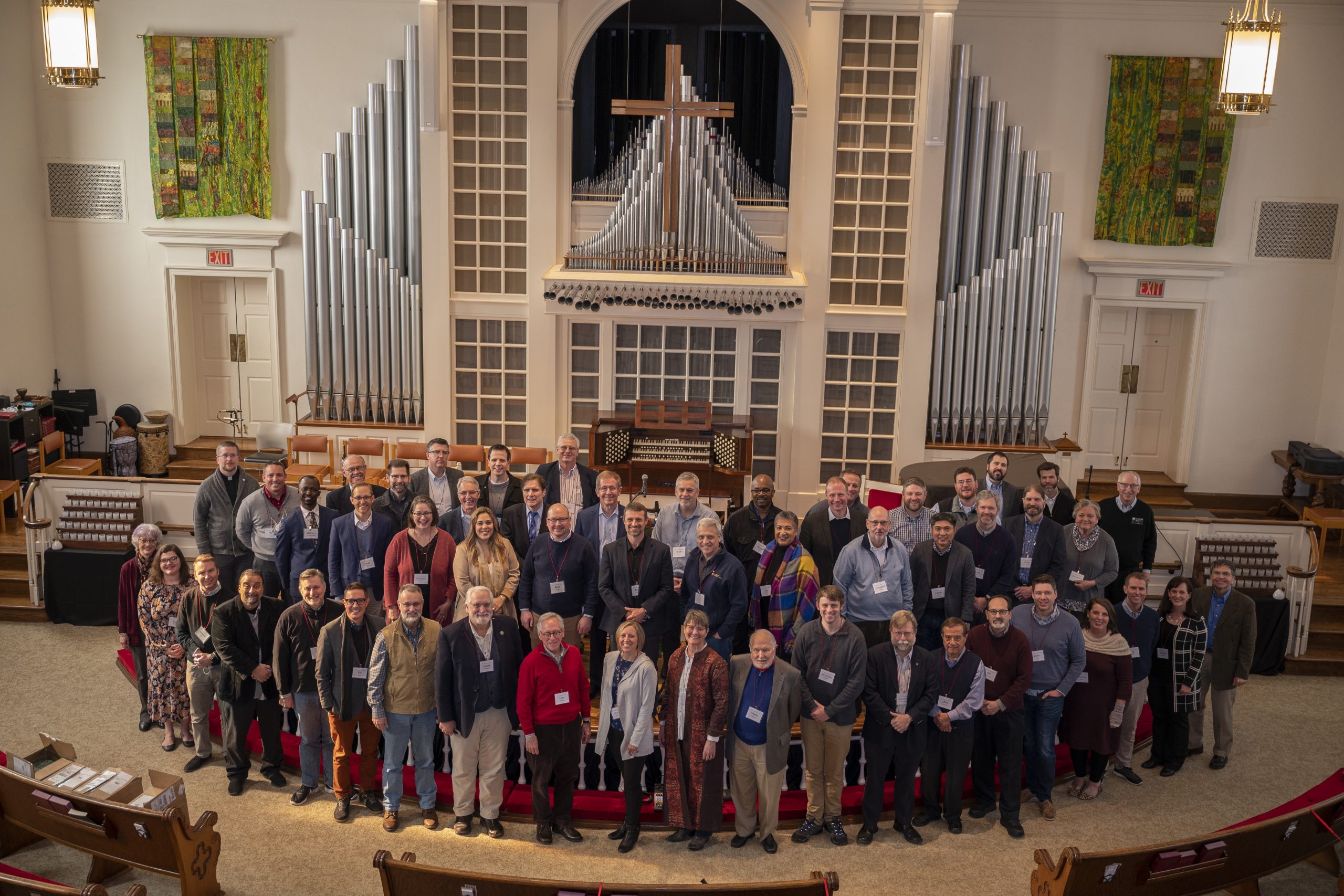“I have come to believe, based on the words and actions of other bishops, that some sort of split in The United Methodist Church is inevitable,” observed Bishop Scott Jones of the Texas Conference in his closing address before a group of traditionalist Wesleyan scholars. “It breaks my heart. Whatever shape the Methodist movement takes in the coming years, it is important to focus on who we are and whose we are. Only with that clarity can we give our best service to Christ and his mission in the world.”
Focusing in on that spiritual and theological identity was the goal as more than 60 Wesleyan scholars from various theological disciplines met in Alexandria, Virginia, for the Next Methodism Summit in late January. The event was sponsored by The John Wesley Institute under the direction of Dr. Ryan Danker. Scholars to this event gathered to write a document entitled “The Faith Once Delivered: A Wesleyan Witness.”
Danker told Good News that the scholars in attendance were “vital to the formation of pastors in the Wesleyan movement” – an essential ingredient to those in the pews and the academy who are concerned about the state of theological education. “We gathered to set the theological trajectory of the Wesleyan movement for the next century or more, to encourage the laity, and to remind the leaders of any and all emerging forms of Methodism that faithful scholars exist and that we have major contributions to make to the movement,” Danker said.
Preachers during the four worship services of the Summit included: Dr. Maxie Dunnam, Dr. Mathieu Gnonhoussou, Dr. Joy J. Moore, and Dr. Michael Pasquarello. Worship leadership was provided by Bishop Jones, Rev. Jessica LaGrone, Dr. Jonathan Powers, Dr. Tesia Mallory, and Dr. Stephen Rankin.
“We in the West are going to have to recognize that the Next Methodism will not be primarily a Western or white phenomenon. And as scholars of the next Methodism, we are going to have to learn to speak and write and listen across cultures,” said Dr. David Watson, academic dean of United Theological Seminary in Dayton, Ohio, during his opening address.
“We would do well intentionally to collaborate with people from the majority world. It cannot simply be the colonial model of us teaching them. They will also teach us,” Watson emphasized. “We are going to have to make our work accessible to people who make less than $100 a month. We are going to have to think about post-secondary and seminary education according to new paradigms. All of this will require not just conversation, but genuine relationships of Christian love and fellowship. It will require humility and vulnerability. Majority-world Christianity is here. These brothers and sisters in Christ have already begun to re-evangelize the West. And the question for us is, ‘How can we, as scholars, serve this burgeoning global church, preserving and passing on those beliefs and practices that are most central to our Methodist identity?’”
The academics were invited to participate from around the country and the globe. Covid-19 restrictions hindered most international guests. Those gathered were primarily from The United Methodist Church, but included participants who are Anglican, Episcopal, Nazarene, Salvationist, and Church of God, Cleveland.
“I was honored to be included among the scholars working together to write this theological document,” the Rev. Dr. Suzanne Nicholson, professor of New Testament at Asbury University in Wilmore, Kentucky, told Good News. “It was a mark of the presence of the Holy Spirit that we were able to produce a draft in such a short period of time. I also found it incredibly encouraging to worship together with these men and women – scholars who love the Lord and are working to serve the Kingdom.”
Sessions for the Summit were primarily dedicated to working groups where portions of the larger document were composed in dialogue. The event also included the release of a new book, The Next Methodism: Theological, Social, and Missional Foundations for Global Methodism (Seedbed), edited by Drs. Ryan Danker and Kenneth Collins. The volume deals with the future of Methodism by more than 30 Methodist thinkers. Many of the authors attended the summit.
“I believe that the whole world desperately needs what the Wesleyan movement has to offer,” Bishop Jones told the scholars. “We are like people hoarding food while those around us are starving. It is time we made an inventory of our spiritual resources and figured out ways to invite a starving world to the table.”
Good News Media Service.






0 Comments